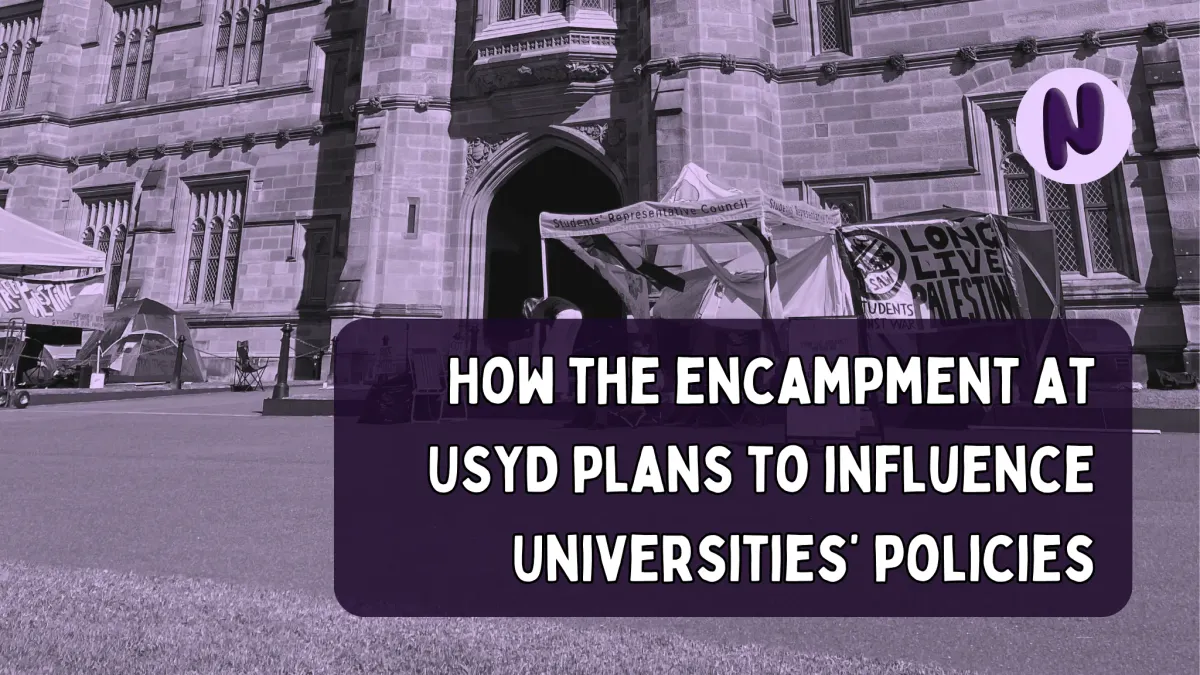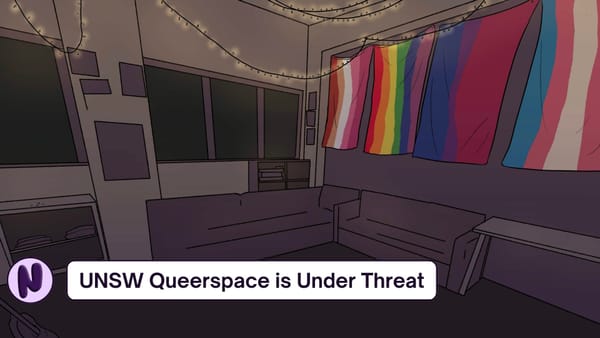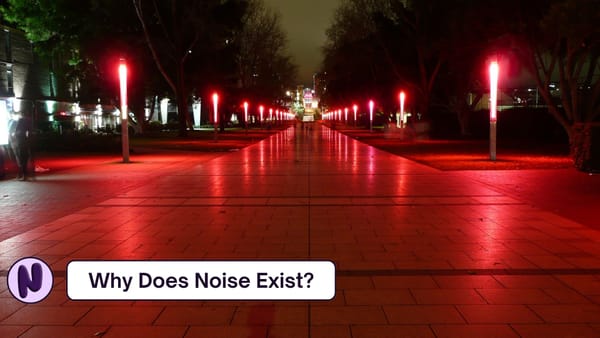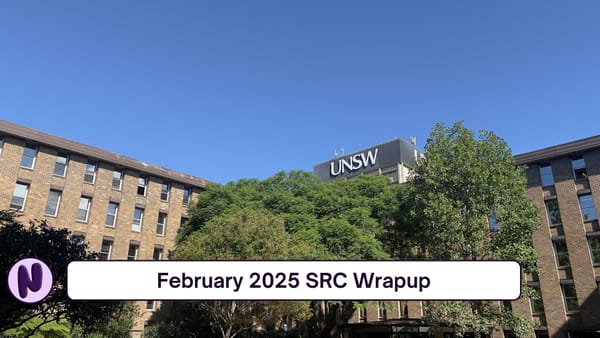How the encampment at USYD plans to influence Universities’ policies
In light of the arrests across the USA, Australian students have started solidarity encampments demanding action against the invasion of Gaza.

On Wednesday, the 24th of April, a sit-in began at the University of Sydney. Students have gathered at the Camperdown/Darlington campus in solidarity with pro-Palestine activists, pushing for their universities to “disclose and divest” by cutting ties with Israeli universities and weapon manufacturers, and urging for an end to complicity in genocide. UTS, WSU and UNSW students have also gathered at the encampment, aiming to reinforce the numbers and present a unified front. This action isn’t just limited to Australia, with the USYD encampment following in the footsteps of Columbia University and others across the globe. In the USA, over 600 students and staff have been arrested in the past week, with university administrations claiming the arrests were based on trespassing and an indictment of educational spaces. However, with growing tensions, police brutality, and snipers spotted on the roofs of Indiana and Ohio State University, the seemingly harsh response of university administration has been brought into question.
Sit-ins have a significant history of influencing public policy and drawing attention to social issues. Originating from the civil rights movement in the USA, this form of peaceful protest was quickly adopted in Australia, particularly in the 1960s and 1970s, during the push for indigenous rights and the anti-Vietnam War movement. One of the most notable examples occurred in 1965, when a group of students from the University of Sydney staged a sit-in at the Moree Baths and Swimming Pool to protest racial segregation policies which effectively barred Aboriginal people from entering. This protest was part of the Freedom Ride—a series of actions led by Charles Perkins, which played a crucial role in highlighting racial discrimination in Australia and resulted in the 1967 referendum to include Aboriginal Australians in the census.
“I’m at this encampment because it's a pillar of honesty and a call for justice. The uni would love to pretend like it's not killing kids in Gaza with its Thales partnership and exchange partnerships, to rake in more money from unsuspecting students. But this camp is hitting them where it hurts, exposing the truth, teaching the community and not letting them forget. We stand with the over 30,000 martyrs and with refugees hiding with nowhere to go. I've learned a lot here, and know we can teach so many others.”
- Jesper Duffy, Student @ the University of Sydney
Duffy's words echo the sentiments of many participating in the sit-in. As a form of peaceful protest, the encampments serve as powerful demonstrations against institutional complicity in human rights violations and a demand for accountability, shedding light on the murky waters of university partnerships and financial interests. By occupying spaces where their presence cannot be ignored, the protesters have created a physical and symbolic manifestation of dissent. Their methods have drawn significant media attention, including coverage from mainstream news outlets, which has resulted in increased pressure on policymakers and university executives to fulfil their demands.
Midhat, a member of Students Against War (a Solidarity-affiliated anti-war organisation), further emphasised the nature of the sit-in and its broader implications:
“This encampment is a means to bring to attention the ties [the University of Sydney] has not only with weapons manufacturers that trade with Israel in the imperial colonial slaughter of Palestine, but also the Israeli universities who operate on stolen land. We at Students Against War have also been pushing for the social movement of the encampment to be enmeshed with the worker struggle. The UniSyd branch of the NTEU will vote on a motion to have an academic BDS of all things Israel at the uni on May 9. We’ve had endorsements from the MUA, support from the PSA, CFMEU, Nurses and Midwives for Palestine, and Teachers for Palestine. We’ll be bringing a student contingent to the International Worker Day strike May Day on May 1st in solidarity with Palestinian trade unions. Our strategy of linking student and industrial struggle will expand the movement and cause ripples in society that will make Palestine an unavoidable issue for the Albanese govt.”

As students continue to call for their universities to sever ties with unethical organisations and repressive governments, a broader conversation is emerging about the ethical responsibility and institutional complicity of higher-education and research institutions, and whether they should prioritise their students or their bottom line. Both USYD and UNSW have significant ties to Israeli universities, as well as research partnerships with the manufacturers of weapons currently being used against civilian populations in Gaza.
Honi Soit is providing semi-regular updates on the USYD encampment on their social media pages (Email | Facebook | Instagram | X). If you are able and willing to join the encampments, we encourage you to reach out to the University of Sydney SRC (Email | Facebook | Instagram | X) on social media for more information.





